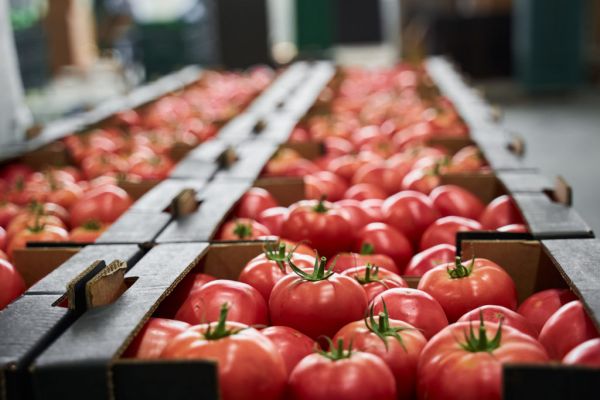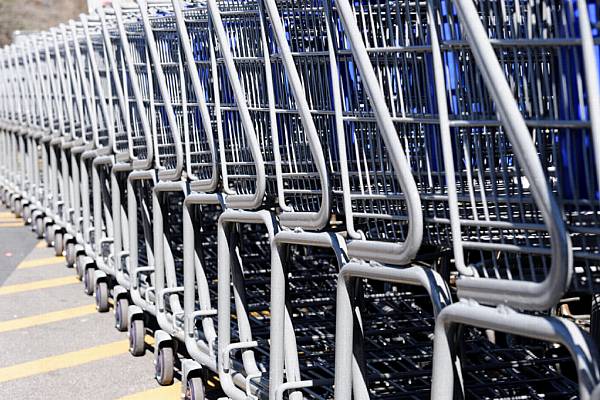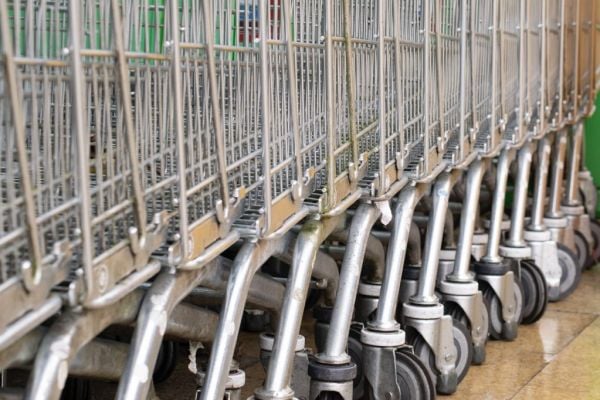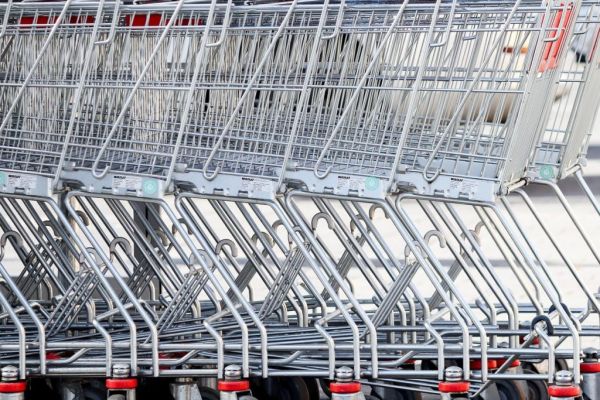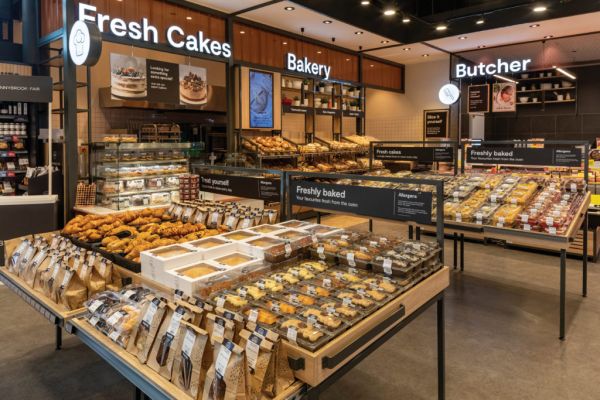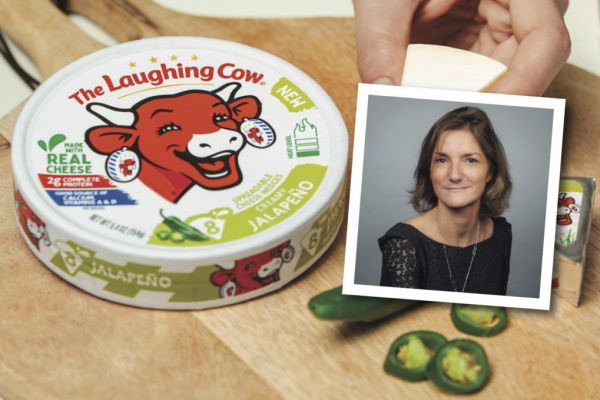It's approximately a month since the UK faced a shortage of tomatoes, cucumbers and other salad vegetables, leading to disgruntled shoppers posting images of empty shelves on social media, government officials scrambling to engage with suppliers and retailers, and many blaming Brexit for the disruption.
The core cause of the shortage, as became clear over the duration of the 'crisis', centred on growing conditions in Spain and Morocco, two of the main suppliers of tomatoes to the British market.
In Spain, for example, tomato volumes from the Almeira region were down 22% in February, due to unpredictable weather, according to Fruitnet, while two main associations of vegetable producers and packers in Morocco, Apefel and Amcom, cited a long period of cold weather (followed by a burst of high temperatures) as affecting the tomato harvest.
Shoppers in the UK and Ireland are facing a shortage of tomatoes after supermarket supplies were impacted by disrupted harvests in southern Europe and North Africa.https://t.co/bHHzf5HkrJ #tomatoes #freshproduce #farming #retail
— European Supermarket Magazine (@esm_magazine) February 21, 2023
The situation in Span and Morocco also led to a similar shortage in Ireland, where the Irish Farmers' Association (IFA) cited a 'broken' food supply chain and soaring input costs as factors negatively impacting the horticultural sector.
Domestic Production
However, there were other factors at play. This past winter saw fewer tomatoes produced domestically in the UK, due to high energy costs, and therefore lower output from greenhouses.
In her speech to the National Farmers' Union (NFU) Conference in February, president Minette Batters noted that "production of salad ingredients like tomatoes and cucumbers are expected to fall to the lowest levels since records began in 1985" as a result of heightened energy costs.
A Question Of Brexit
On the role of Brexit in the shortage, some suppliers have noted the increased paperwork required to export products to the UK as a contributing factor – as Guy Singh-Watson of Riverford Farms, noted on Twitter, "The reason people don't want to export to the UK is that we are a customer of last resort – because we're such a pain in the arse to deal with."
Lots of veg and tomato’s in Tesco in Budapest - @Riverford Guy speaks about why you don’t have them on your shelves#ToryGaslights #veg #brexit #truth #enoughisenough pic.twitter.com/qOK1Rt8COB
— Geetie Singh-Watson ?? (@geetiesingh) February 26, 2023
With many greenhouses having been mothballed in the past year, more than 80% of the UK's fruit and almost half of its vegetables now come from imports – a risky approach when production capacity in other markets is lower, as ParcelHero’s head of consumer research, David Jinks, recently put it.
"The problem is that the UK is no longer in the EU’s single market and every consignment of 'plant products' from the EU to the UK is supposed to require customs declarations and pre-notification on the government's IT system," he said.
"Suppliers in countries such as Spain and Holland are complaining that post-Brexit checks and paperwork are too time-consuming, and it’s far easier for them to sell all their produce to the EU. The BBC reports anecdotal evidence that Dutch drivers say it takes 77 hours of queuing to take tomatoes to the UK."
Former Sainsbury's CEO Justin King didn't mince his words either, in an interview with BBC radio.
"There is a genuine shortage but we did rather bring this problem upon ourselves," he explained. "We could have chosen to subsidise the energy this winter as we have done for other industries."
Read More: Britain's Salad Vegetable Crisis Its Own Fault, Says Former Sainsbury's Boss
The Next Steps
In response to the shortage, British food and farming minister Mark Spencer met with executives of the UK's major grocers to discuss ways to alleviate supply issues and ensure the country is better prepared for potential further shortages down the track.
"I have also asked them to look [...] at how they work with our farmers and how they buy fruit and vegetables, so they can further build our preparedness for these unexpected incidents," he said in a statement.
Having initially imposed limits on the purchasing on certain salad vegetables when the shortage began in February, most UK retailers have since relaxed these restrictions, as supplies returned to normal – albeit with intermittent shortages in the weeks since.
It also appears that the impact of the shortage on overall shopping trends has been minimal.
Announcing its market share figures for the 12-week period to 19 March, Kantar noted that while the availability of fresh fruit and vegetables was 'high on the agenda' for consumers, shoppers by and large were able to find what they needed.
“Despite concerns about shortages, the number of baskets containing tomatoes, cucumbers or peppers in the 10 major grocers stayed at 17% in March, the same as February," commented Fraser McKevitt, head of retail and consumer insight at Kantar.
"For any shoppers who couldn’t get what they wanted in larger supermarkets, the independents stepped in, with the volumes of tomatoes, peppers and cucumbers in baskets rising by 32%, 26% and 21% respectively in these stores.”
Read More: UK Government Calls In Supermarket Bosses For Salad Crisis Talks
Fresh Food Inflation
At the same time, however, the shortage has had a knock-on effect on food price inflation in the UK, with fresh food inflation rising to 17.0% in March, up from 16.3% in February.
This is above the three-month average of 16.4%, and is the highest inflation rate in the fresh food category on record, with the weakening pound also impacting the affordability of imports, the BRC said. Overall, shop price inflation stood at 8.9% for the month.
So, is the UK out of the woods now, or are such shortages likely to re-materialise as the year progresses?
The UK imported 266,273 tonnes of vegetables in January 2023, a recent report by FreshPlaza noted, stating that British shoppers 'may have to get used' to vegetable shortages.
“There’s a limit to how long growers can carry on producing stuff at a loss," Jack Ward, CEO of the British Growers Association was quoted as saying in the report.
Elsewhere, as analyst Danni Hewson of AJ Bell noted recently, "Questions are being asked about whether the UK is singularly impacted by the shortages and whether the post Brexit world leaves the country more vulnerable to supply shocks."
It looks like being a case of when, and not if, such a situation arises again.
Read More: Britain Has Held Down Salad Prices, Europe Hasn't, Says UK Minister
© 2023 European Supermarket Magazine – your source for the latest fresh-produce news. Article by Stephen Wynne-Jones. Click subscribe to sign up to ESM: European Supermarket Magazine.
